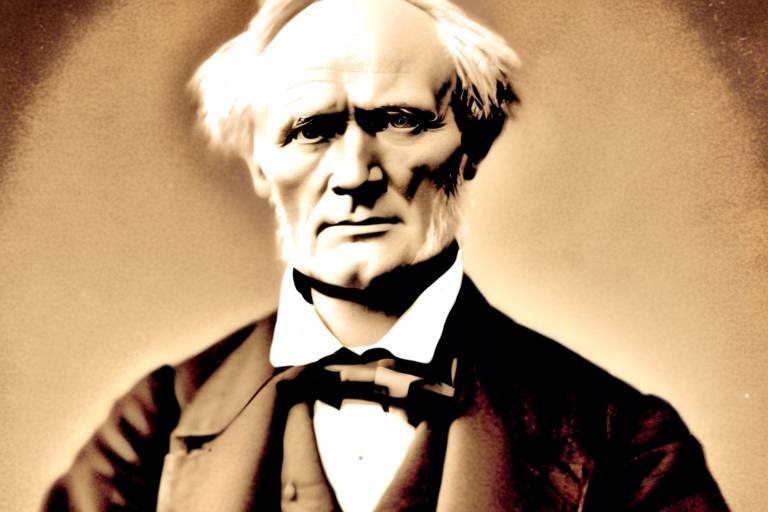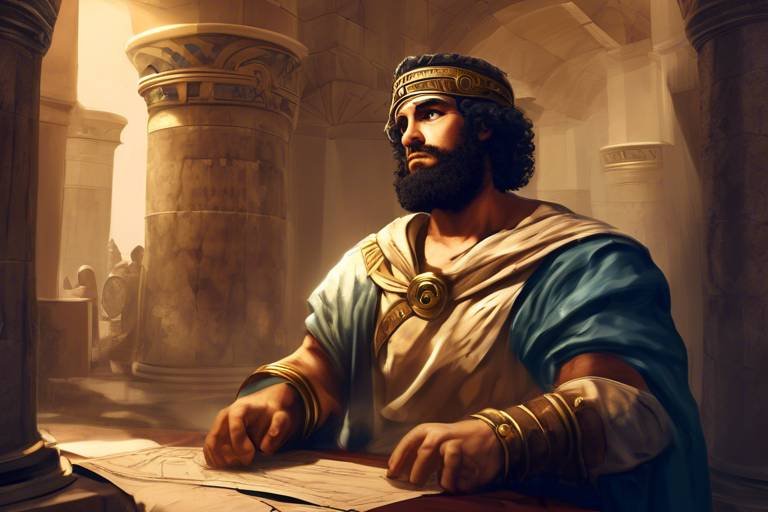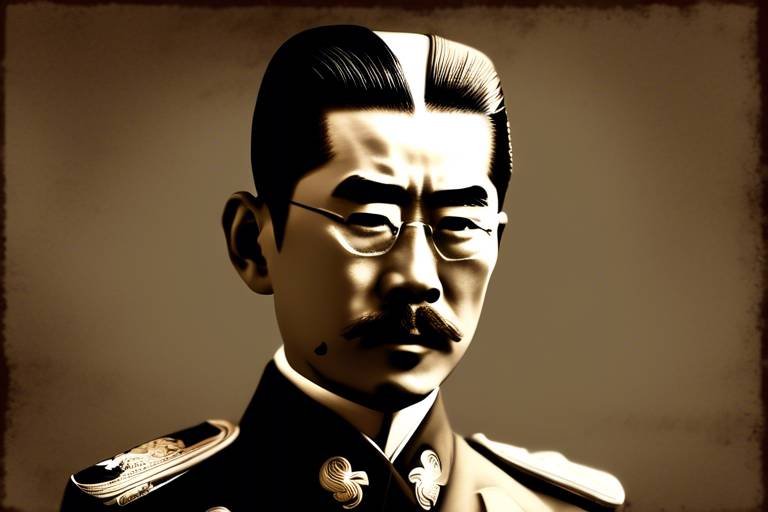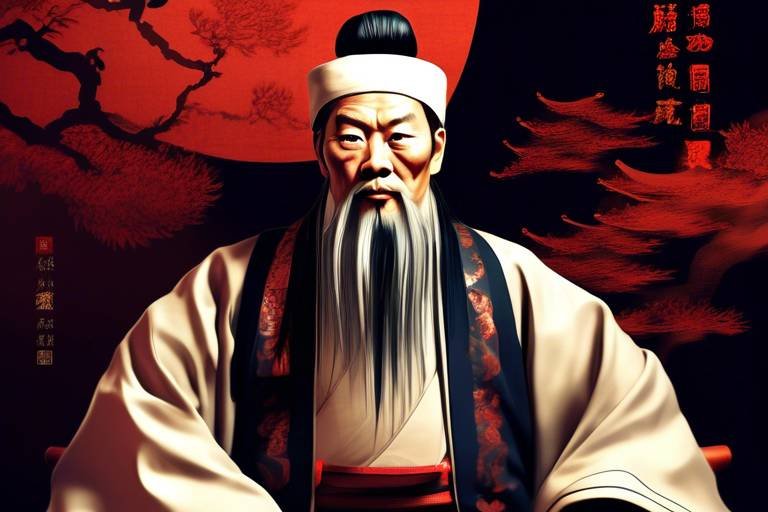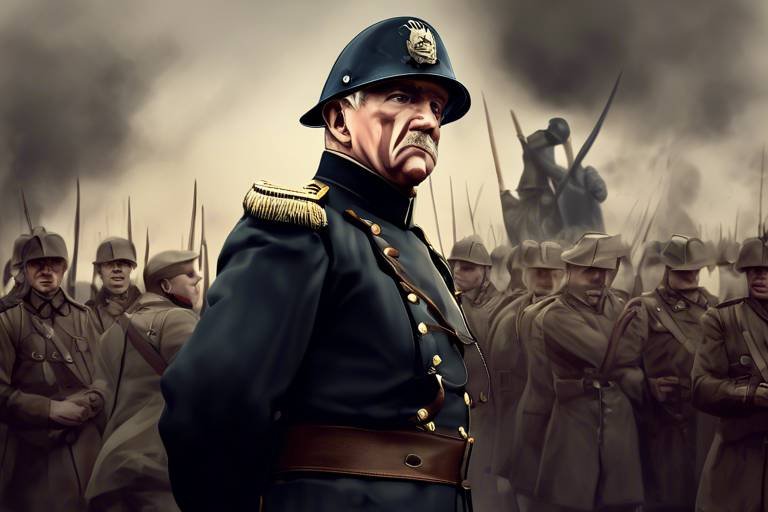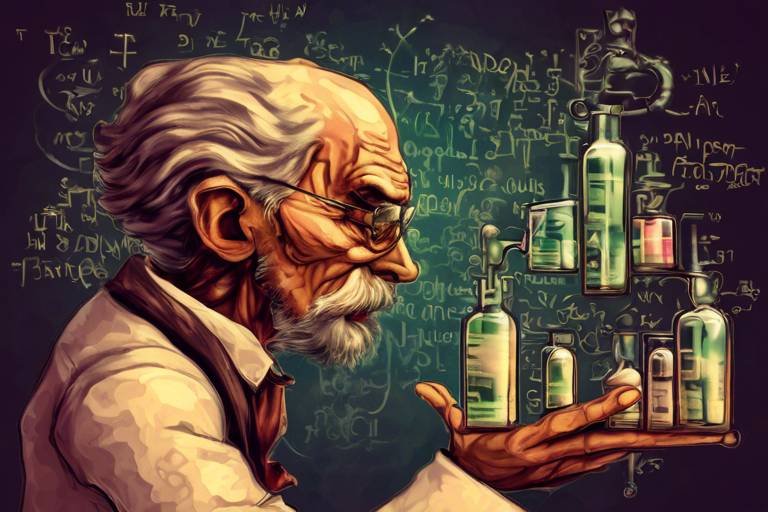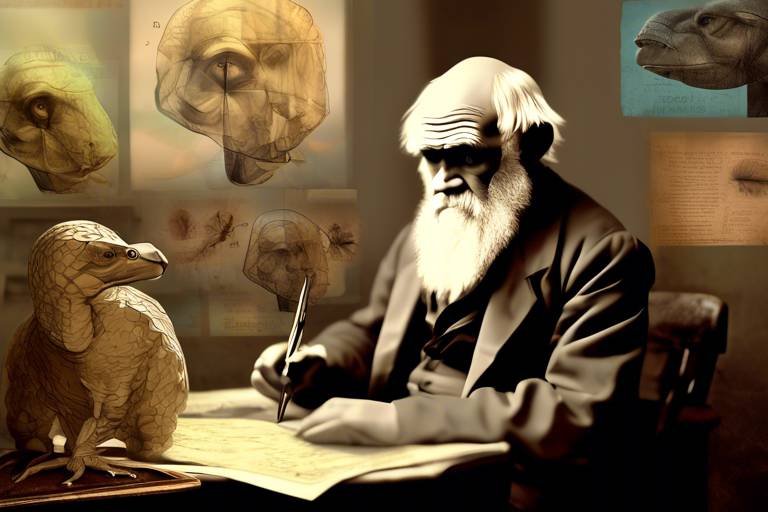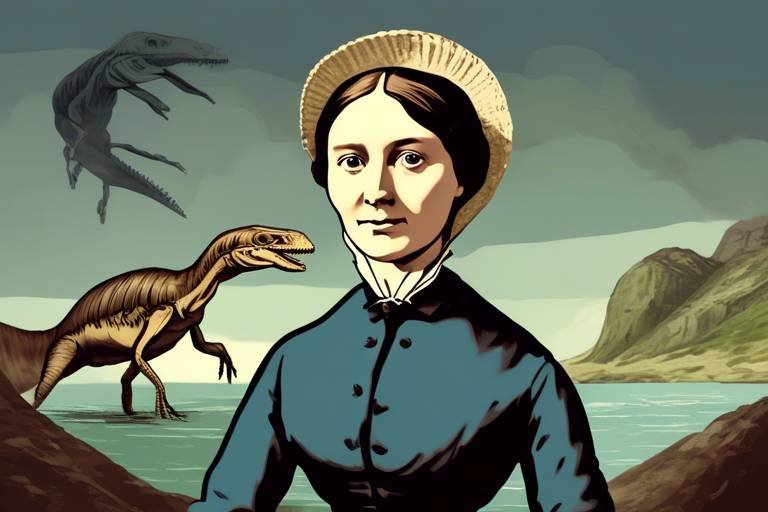Turing: The Father of Computer Science
Alan Turing, often hailed as the father of computer science, was a visionary whose work revolutionized the world of technology and laid the groundwork for modern computing as we know it today. His pioneering contributions in the fields of mathematics, logic, and artificial intelligence have left an indelible mark on the course of history, shaping the way we interact with machines and the digital landscape.
From his early life and education to his groundbreaking theories on computability and artificial intelligence, Turing's journey was marked by brilliance, innovation, and a relentless pursuit of knowledge. His work not only helped in cracking the German Enigma code during World War II, a pivotal moment in history that changed the tide of the war, but also introduced the concept of the Turing Machine, a theoretical device that revolutionized the way we understand computation.
One of Turing's most enduring legacies is his influence on artificial intelligence, particularly his proposal of the Turing Test, a benchmark for gauging a machine's ability to exhibit intelligent behavior comparable to that of a human. His insights into morphogenesis, the study of patterns in nature, further showcased his multidisciplinary approach to scientific inquiry, bridging the gap between mathematics and biology.
Despite facing controversies and persecution in his lifetime, including his unjust treatment for his homosexuality, Turing's contributions to science and technology continue to be celebrated and honored. His legacy extends beyond the realms of academia, impacting fields such as cryptography, LGBTQ+ rights, and societal perceptions of machine intelligence.
As we delve into the life and work of Alan Turing, we uncover a tapestry of brilliance, resilience, and innovation that continues to inspire generations of scientists, engineers, and thinkers. His story serves as a testament to the power of human intellect and the boundless possibilities that emerge when curiosity, creativity, and perseverance converge in the pursuit of knowledge.

Early Life and Education
Exploring the life and contributions of Alan Turing, a pioneer in computer science and artificial intelligence, whose work laid the foundation for modern computing and changed the course of history.
Alan Turing was born on June 23, 1912, in Maida Vale, London, to Julius Mathison Turing and Ethel Sara Stoney. From a young age, Turing demonstrated exceptional aptitude in mathematics and science, showing a keen interest in solving complex problems. His education at Sherborne School and later at King's College, Cambridge, provided him with a solid foundation in mathematics and logic.
During his time at Cambridge, Turing was influenced by the works of mathematicians such as G. H. Hardy and Alonzo Church, which sparked his interest in the foundations of mathematics and formal logic. These early influences played a crucial role in shaping Turing's future contributions to the field of computer science.
Despite facing challenges in his personal life, including his struggles with social interactions and his unconventional approach to problem-solving, Turing's unique perspective and innovative thinking set him apart as a brilliant mind in the world of academia.
His academic journey eventually led him to develop groundbreaking theories in mathematical logic, laying the groundwork for his future work on computability and artificial intelligence. Turing's early experiences and education set the stage for his remarkable career and enduring legacy in the field of computer science.
1. What is the significance of Alan Turing's work in computer science?
2. How did Turing's contributions to codebreaking impact World War II?
3. What is the Turing Test, and why is it important in the field of artificial intelligence?
4. How has Alan Turing's legacy influenced modern technology and scientific thought?
5. What efforts are being made to honor Turing's memory and contributions to science?

Enigma Codebreaking
During World War II, Alan Turing played a pivotal role in the top-secret project to break the German Enigma code, a complex encryption system used by the Axis powers to communicate confidential military information. Turing's expertise in mathematics and logic, combined with his innovative thinking, proved instrumental in developing the Bombe machine, a device designed to decipher Enigma-encoded messages. This groundbreaking achievement not only provided crucial intelligence to the Allies but also significantly shortened the war by enabling strategic decisions based on intercepted enemy communications.
Working at Bletchley Park, the British codebreaking center, Turing and his team faced immense challenges in decrypting the Enigma messages due to the machine's sophisticated encoding mechanisms and the constant changes in its settings by the German forces. Despite these obstacles, Turing's analytical brilliance and determination led to the successful decryption of the Enigma code, a breakthrough that remained classified for decades after the war ended.
The Enigma codebreaking efforts not only showcased the power of early computing machines in deciphering complex ciphers but also highlighted the critical role of cryptanalysis in wartime intelligence operations. Turing's contributions in this field not only saved countless lives but also laid the foundation for modern cryptography and cybersecurity practices, influencing the development of encryption technologies that continue to safeguard sensitive information in the digital age.

Turing Machine
The Turing Machine, proposed by Alan Turing in 1936, is a theoretical device that revolutionized the field of computer science. Imagine a simple machine with an infinite tape divided into cells, where each cell can hold a symbol. This machine has a read/write head that can move left or right along the tape, reading the symbol under it and writing a new symbol based on predefined rules. The beauty of the Turing Machine lies in its simplicity yet immense computational power.
At its core, the Turing Machine embodies the concept of algorithmic computation. By manipulating symbols on the tape according to a set of rules, it can perform any computation that can be algorithmically described. This idea laid the foundation for modern computers, where complex tasks are broken down into simple instructions that can be executed sequentially.
One of the key insights of the Turing Machine is its universality. It can simulate the logic of any computer algorithm, making it a fundamental concept in the theory of computation. This universality demonstrates that all computers, regardless of their physical design, share a common theoretical framework rooted in the principles of the Turing Machine.
Moreover, the Turing Machine introduced the notion of decidability and computability. Turing showed that there are problems that are algorithmically unsolvable, such as the Halting Problem, which asks whether a given program will eventually halt or run forever. This concept of inherent limitations in computation has profound implications for the capabilities and boundaries of computer systems.
In essence, the Turing Machine is not just a theoretical construct; it represents a paradigm shift in how we understand computation and the limits of what can be computed. Alan Turing's visionary creation continues to shape the landscape of computer science, inspiring generations of researchers and laying the groundwork for the digital age we live in today.

Computability and Decidability
Exploring the life and contributions of Alan Turing, a pioneer in computer science and artificial intelligence, whose work laid the foundation for modern computing and changed the course of history.
Alan Turing made significant contributions to the theory of computability and decidability, revolutionizing the way we understand the capabilities and limitations of computers. One of his most notable achievements was the formulation of the Halting Problem, which proved that there are certain problems that computers cannot solve. This groundbreaking concept established fundamental boundaries in the realm of computation, shaping the future of computer science.
Turing's work on computability led to the development of the Turing Machine, a theoretical device that laid the groundwork for modern computers and algorithms. By introducing the concept of a universal computing machine capable of executing any algorithm, Turing revolutionized the field of computer science and set the stage for the digital age.
Moreover, Turing's investigations into decidability, particularly in the context of mathematical logic, provided crucial insights into the nature of computation and the boundaries of what is mathematically provable. His pioneering work in this area not only expanded our understanding of the theoretical underpinnings of computing but also influenced the development of practical applications in various domains.
In essence, Turing's exploration of computability and decidability not only shaped the theoretical foundations of computer science but also paved the way for the development of sophisticated algorithms, programming languages, and computational models that continue to drive innovation in the digital era.
Stay tuned for answers to commonly asked questions about Alan Turing's life, work, and enduring legacy in the fields of computer science, artificial intelligence, and beyond.

Artificial Intelligence
Exploring the life and contributions of Alan Turing, a pioneer in computer science and artificial intelligence, whose work laid the foundation for modern computing and changed the course of history.
Alan Turing's impact on the field of artificial intelligence was profound and far-reaching. One of his most notable contributions was the proposal of the Turing Test, a benchmark for determining a machine's ability to exhibit intelligent behavior indistinguishable from that of a human. This test has become a cornerstone in the development and evaluation of AI systems, challenging researchers to create machines capable of human-like reasoning and communication.
Moreover, Turing's insights into the potential of machines to simulate human intelligence paved the way for advancements in areas such as natural language processing, machine learning, and robotics. His visionary ideas continue to shape the evolution of AI technologies, driving innovations that have revolutionized industries and transformed daily life.
By envisioning a future where machines could think and learn like humans, Turing sparked a revolution in AI research that continues to thrive today. His pioneering work in this field not only inspired generations of scientists and engineers but also laid the groundwork for the development of intelligent systems that are integral to our modern world.

Morphogenesis
Alan Turing's work in the field of morphogenesis delved into the fascinating realm of patterns in nature and the mathematical principles governing the formation of biological structures. By studying the intricate designs found in living organisms, Turing proposed groundbreaking theories and models to explain how these complex forms emerge from simple rules and interactions. His research not only shed light on the underlying mechanisms of growth and development in nature but also inspired further exploration into the mathematical basis of biological processes.

Legacy and Impact
Alan Turing, a pioneer in computer science and artificial intelligence, is renowned for his groundbreaking work that revolutionized modern computing and altered the course of history.
Alan Turing's legacy in the realms of computer science, artificial intelligence, cryptography, and LGBTQ+ rights is profound and far-reaching. His contributions continue to shape technology, society, and scientific thought to this day.
Turing's work on the Enigma codebreaking during World War II not only played a crucial role in the Allied victory but also demonstrated the potential of early computing machines in solving complex problems efficiently. This feat not only saved countless lives but also showcased the power of computational thinking in real-world applications.
Moreover, Turing's concept of the Turing Machine laid the foundation for modern computers and algorithms, establishing the idea of computation as a universal process. His theoretical device provided a framework for understanding the capabilities and limitations of computing systems, influencing the development of computer science as a discipline.
In the field of artificial intelligence, Turing's proposal of the Turing Test as a measure of machine intelligence paved the way for evaluating the cognitive abilities of computer systems. By challenging the boundaries between human and machine intelligence, Turing sparked discussions on the nature of consciousness and the potential for creating intelligent machines.
Aside from his contributions to computer science and artificial intelligence, Turing's work in morphogenesis, studying patterns in nature and biological forms, showcased his interdisciplinary approach to scientific inquiry. His mathematical models offered insights into the development of complex structures in living organisms, highlighting the interconnectedness of mathematics and biology.
Despite his enduring impact on science and technology, Turing faced significant challenges and controversies during his lifetime. His persecution for homosexuality, a criminal offense at the time, led to his tragic death and tarnished his reputation for decades. However, posthumous recognition of his achievements and efforts to honor his memory have brought attention to his remarkable contributions and the injustices he endured.
In conclusion, Alan Turing's legacy as the father of computer science transcends his technical innovations and theoretical breakthroughs. His enduring influence on diverse fields, from cryptography to artificial intelligence, serves as a testament to his brilliance, resilience, and lasting impact on the world.

Controversies and Recognition
Alan Turing's life was not without its controversies and challenges. Despite his invaluable contributions to computer science and the war effort, Turing faced persecution for his homosexuality, which was considered a criminal offense in the UK at the time. In 1952, Turing was convicted of "gross indecency" and subjected to chemical castration as an alternative to imprisonment.
This unjust treatment took a toll on Turing's personal and professional life, ultimately leading to his tragic death by suicide in 1954. It was not until decades later, in 2009, that the British government issued a formal apology for the way Turing had been treated, acknowledging the profound injustice he had endured.
Fortunately, Turing's legacy has since been rightfully recognized and celebrated. In 2013, Queen Elizabeth II granted him a posthumous pardon, acknowledging his exceptional contributions to science and mathematics. The Alan Turing Law, passed in 2017, posthumously pardoned thousands of men who had been convicted under outdated laws criminalizing homosexuality.
Today, Alan Turing is revered as a national hero in the UK and around the world, with numerous tributes and memorials dedicated to his memory. His groundbreaking work in computer science, artificial intelligence, and cryptography continues to inspire generations of scientists, engineers, and innovators.
Frequently Asked Questions
- What are some key contributions of Alan Turing to computer science?
Alan Turing made several key contributions to computer science, including his work on the Turing Machine, which laid the foundation for modern computers and algorithms. He also played a crucial role in breaking the German Enigma code during World War II, significantly aiding the Allied victory.
- What is the significance of the Turing Test in artificial intelligence?
The Turing Test, proposed by Alan Turing, is a measure of a machine's ability to exhibit intelligent behavior indistinguishable from that of a human. It has been a significant concept in the field of artificial intelligence, shaping discussions on machine intelligence and human-computer interaction.
- How did Alan Turing's work in morphogenesis impact the field of biology?
Alan Turing's work in morphogenesis involved studying patterns in nature and proposing mathematical models to explain the development of biological forms. His ideas have influenced the understanding of biological structures and processes, contributing to the field of developmental biology.
- What controversies surrounded Alan Turing's life, and how have they been addressed?
Alan Turing faced persecution for his homosexuality, which had a significant impact on his personal and professional life. Despite this, his contributions to science have been increasingly recognized posthumously, with efforts made to honor his legacy and contributions to various fields.


